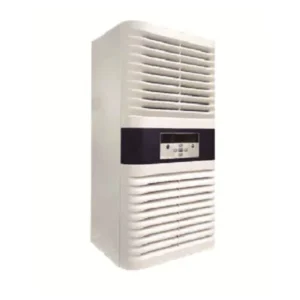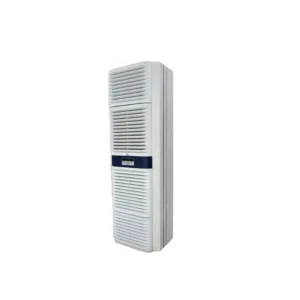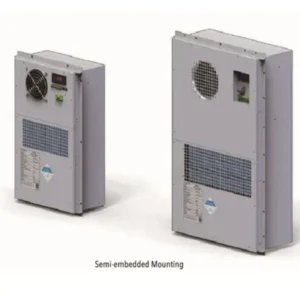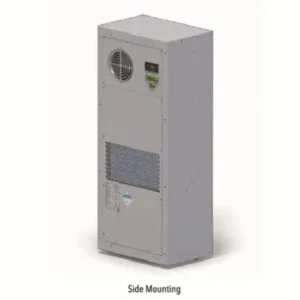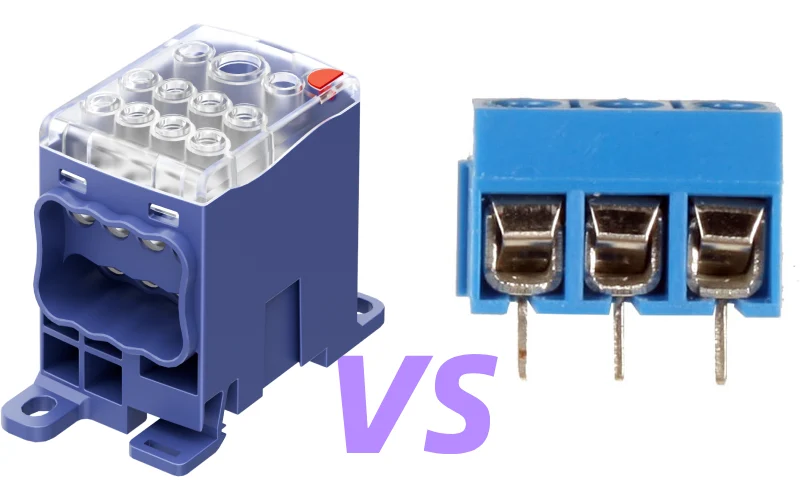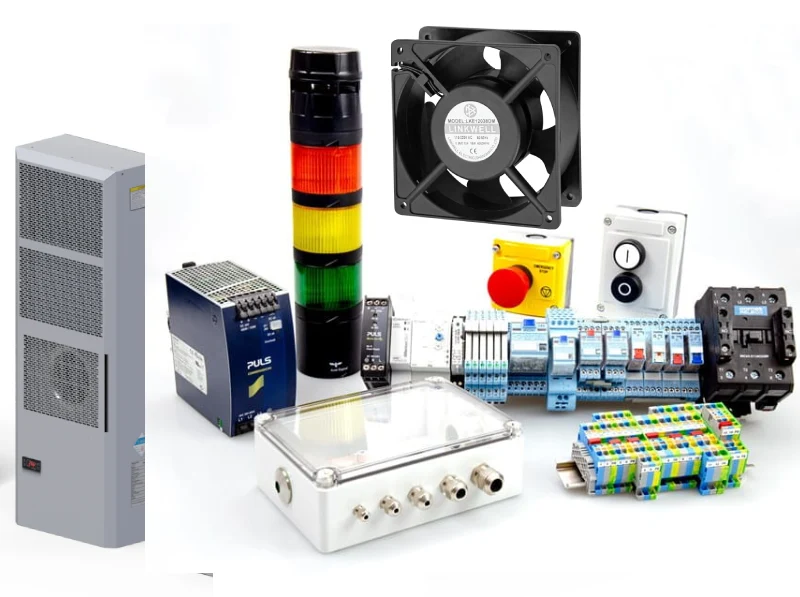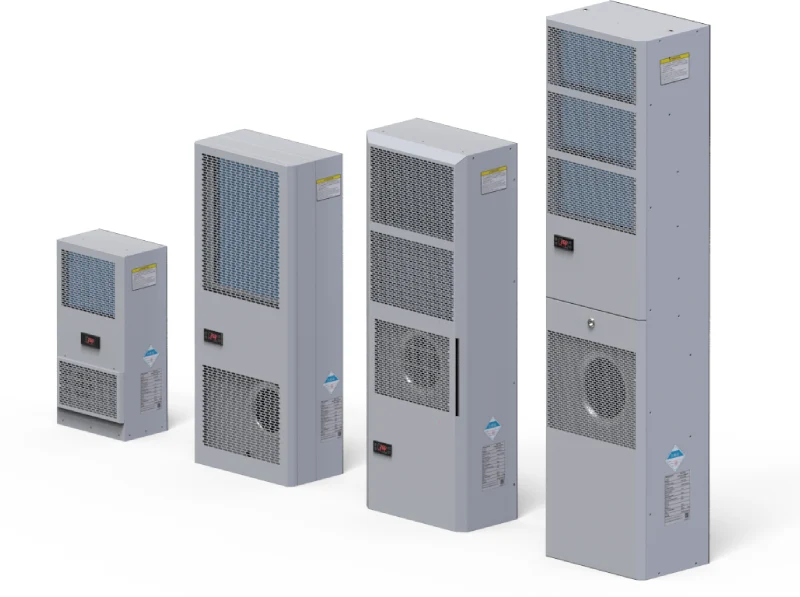You rely on sensitive equipment to keep your industrial operations running smoothly. In tough industrial environments, enclosure air conditioners play a vital role by keeping your enclosure cool and free from dust and moisture. If your enclosure overheats or collects contaminants, your equipment can fail quickly.
Studies show that even a small rise in temperature inside an enclosure can increase failure rates by over 40%. Reliable conditioners, especially advanced DC models, help you maintain stable conditions, reduce downtime, and extend the lifespan of your valuable equipment. Linkewell offers trusted cabinet air conditioner solutions that protect your enclosure and support your industrial success.
Enclosure Air Conditioner Key Takeaways
- Enclosure air conditioners protect sensitive industrial equipment by keeping enclosures cool, dry, and free from dust and moisture, preventing overheating and failures.
- Choosing the right air conditioner means matching its type, size, and NEMA rating to your enclosure’s environment and equipment needs for reliable and efficient cooling.
- Regular maintenance like cleaning filters and checking refrigerant levels keeps your cooling system efficient and extends the life of both the air conditioner and your equipment.
- Advanced features such as smart controls, energy-saving technology, and remote monitoring help reduce costs and improve system performance in tough industrial conditions.
- Using certified, durable air conditioners made from corrosion-resistant materials ensures your equipment stays protected in harsh environments, reducing downtime and repair costs.
What Are Enclosure Air Conditioners

Definition and Purpose
When you think about keeping your industrial equipment safe, you probably picture strong enclosures and reliable power. But have you thought about the role of air conditioning systems? Enclosure air conditioners are special industrial hvac units designed to keep the inside of your enclosure cool and dry. These systems use closed-loop cooling to make sure outside air, dust, and moisture never reach your sensitive equipment. You get a sealed environment where temperature and humidity stay under control. This means your electrical and electronic equipment stays safe from overheating, condensation, and contamination.
Industrial air conditioners for enclosures come in many shapes and sizes. You can find systems with different NEMA ratings, like 12, 3R, 4, or 4X, which tell you how much protection they offer against dust, water, and even corrosive chemicals. Some air conditioning systems mount on the side, top, or even inside your enclosure. Others fit into racks or narrow spaces. No matter the style, these hvac systems focus on one thing: keeping your equipment cool and running smoothly.
Tip: Always check the NEMA rating and mounting options when choosing an enclosure air conditioner for your industrial systems.
Industrial Importance
You might wonder why enclosure air conditioners matter so much in industrial settings. The answer is simple: your equipment needs stable conditions to work well. Industrial air conditioners protect your systems from heat, dust, and humidity. Without proper cooling, your equipment can overheat, trip circuits, or even fail completely. Dust and dirt clog filters, while moisture can cause electrical shorts or corrosion. These problems lead to downtime, costly repairs, and lost productivity.
Industrial hvac systems are now more important than ever. The market for enclosure air conditioning systems is growing fast, with more factories, data centers, and automation systems needing reliable cooling. Experts expect the market to double in size by 2033. As your operations become more complex, you need advanced hvac solutions to keep your enclosure and equipment safe. By using the right industrial air conditioners, you protect your investment and keep your systems running at their best.
| Series Name | NEMA Rating | BTU/H Range | Key Features | Mounting Options |
|---|---|---|---|---|
| GuardianX | 4X | 1,000-26,000 | Corrosive protection | Various heights |
| SlimKool | 12, 3R, 4X | 4,000-11,000 | Washdown/outdoor, thermostat | Narrow width |
| Rack Mount | N/A | Up to 5,000 | Data racks, airflow options | Rack-mounted |
Enclosure Air Conditioner Types and Cooling Mechanisms
Recommended products
Main Types
When you look at enclosure air conditioning systems, you’ll find several main types designed for different needs. Each type of cooling system uses unique features to protect your equipment. Here are some of the most common types you’ll see:
- Refrigerant-based cooling systems: These air conditioning systems use a closed-loop design to cool below ambient temperature and reduce humidity inside enclosures.
- Evaporative coolers: These systems rely on evaporation but can’t cool below ambient temperature or lower humidity.
- Heat exchangers: You’ll find air-to-air and air-to-water types that transfer heat without using refrigerants.
- Specialized models: Some cooling systems come with explosion-proof or intrinsically safe designs for hazardous areas.
- Compact and filterless types: These air conditioning systems fit tight spaces and need less maintenance.
- Weather-resistant and corrosion-proof types: These systems handle rain, dust, and harsh chemicals, often meeting strict NEMA ratings.
Note: Always match the type of cooling system to your environment and equipment needs.
How Do Enclosure Air Conditioners Work?
You might wonder how these cooling systems actually work. Unlike simple fans, enclosure air conditioning systems use advanced hvac technology to actively remove heat. Fans only move air around, but they can’t cool below the temperature outside your enclosure. Air conditioning systems use different mechanisms to achieve real cooling.
Some cooling systems use vapor compression, which means they have a compressor, condenser, expansion valve, and evaporator. This setup lets the system pull heat from inside the enclosure and release it outside, keeping your equipment cool even when it’s hot out. Other types, like thermoelectric coolers, use solid-state technology to move heat without moving parts. Heat exchangers transfer heat using special materials or fluids. Each of these systems gives you more control over temperature and humidity than basic fans.
Enclosure Air Conditioner Key Components
Every enclosure air conditioning system relies on a few key components to deliver reliable cooling. Here’s a quick look at what makes these systems work:
| Component | What It Does |
|---|---|
| Compressor | Pressurizes refrigerant for efficient heat removal. |
| Condenser | Releases heat from the refrigerant to the outside air. |
| Expansion Valve | Controls refrigerant flow for proper cooling. |
| Evaporator | Absorbs heat from inside the enclosure. |
| Fan | Moves air to distribute cooling evenly. |
| Filter | Keeps dust and debris out of the system. |
| Thermostat | Monitors and adjusts temperature for stable cooling. |
Programmable thermostats and digital controls help you fine-tune your cooling systems for energy savings. Some systems include redundancy, so if one unit fails, another takes over. Corrosion-resistant materials and weatherproof designs keep your hvac systems running strong in tough environments. When you choose the right components and cooling systems, you protect your equipment and keep your operations running smoothly.
Enclosure Air Conditioner Applications in Industry

Manufacturing and Automation
You see enclosure air conditioners everywhere in manufacturing and automation. These industrial air conditioners keep your control panels and machinery at safe temperatures, even when kilns or heavy machines push the heat up to 110°F. You need your equipment to stay between 41°F and 86°F for best performance. Industrial hvac systems like Linkewell’s Cabinet Air Conditioner help you meet these strict requirements. They use baffling and airflow management to keep every component cool. You get modular, lockable enclosures that protect your automation systems from dust and moisture. This means less downtime and longer equipment life. You also meet industry standards for safety and efficiency.
| Industry | Primary Reasons for Adoption |
|---|---|
| Manufacturing | Maintain optimal temperature/humidity; protect control panels and machinery; ensure operational efficiency and longevity |
Data Centers and IT
Data centers and IT rooms need stable conditions. Overheating can cause hardware failure or even fire. Industrial air conditioners prevent these risks by keeping your servers and electronics cool. You want your data safe and your operations running 24/7. Many conditioners offer redundancy, so if one fails, another takes over. Linkewell’s solutions support remote monitoring and predictive maintenance. You get peace of mind knowing your IT equipment stays protected. Industrial hvac systems also help you manage heat loads and reduce downtime.
- Prevent overheating and fire hazards
- Maintain stable temperatures for sensitive data
- Extend hardware lifespan and reduce downtime
- Enable remote monitoring and backup operation
Food Processing
Food processing plants face unique challenges. You must follow strict hygiene rules and handle frequent wash-downs. Industrial air conditioners for these applications use 304 stainless steel and meet NEMA 4 or 4X ratings. This resists corrosion and stands up to high-pressure cleaning. Linkewell’s Cabinet Air Conditioner keeps your enclosure sealed from water, detergents, and airborne contaminants. You protect your sensitive electronics and meet FDA sanitation standards. These conditioners help you avoid costly shutdowns and keep your production safe.
- Withstand wash-downs and harsh cleaning agents
- Prevent rust and corrosion
- Maintain controlled environments for food safety
Outdoor and Harsh Environments
You often need industrial air conditioners for outdoor or extreme settings. Think of energy, infrastructure, or robotics in remote locations. These conditioners use robust designs, corrosion-resistant coatings, and tight sealing. Linkewell’s Cabinet Air Conditioner meets IP54/IP65 and NEMA standards, so your enclosure stays safe from dust, rain, and chemicals. You get reliable cooling for your equipment, even in the toughest conditions. These industrial hvac systems support continuous operation and reduce maintenance needs.
| Feature | Description |
|---|---|
| Environmental Tolerance | Withstand dust, humidity, oil, and harsh conditions |
| Corrosion-Resistant | Use stainless steel and special coatings |
| Sealing | Prevent dust and debris from entering the enclosure |
| Compliance | Meet NEMA and IP ratings for water and dust protection |
You can trust Linkewell’s conditioners for a wide range of industrial applications. Their adaptability and certifications make them a top choice for energy, infrastructure, and robotics. You get reliable performance, no matter the application or environment.
Conditioners Features and Selection
Durability and Materials
When you choose industrial air conditioners for your enclosure, durability matters most. You want conditioners that can handle tough environments and keep your equipment safe year-round. Manufacturers use different materials to build these systems, each with its own strengths. Here’s a quick look at the most common types:
| Material Type | Advantages | Suitability |
|---|---|---|
| Metal (Stainless Steel, Aluminum) | Excellent strength, impact resistance, corrosion resistance | Ideal for harsh, corrosive, humid, or coastal environments requiring high durability |
| Plastic | Lightweight, cost-effective, corrosion-resistant | Suitable where weight and budget are critical factors |
| Composite | Combines benefits of metal and plastic; enhanced durability, weather resistance, longer lifespan | Provides long-lasting performance in harsh outdoor conditions |
Stainless steel, especially 304-grade, stands up to corrosion and wet conditions. Aluminum resists rust and keeps weight down. Some conditioners use UV-resistant coatings or powder-coated finishes to block sun damage and physical impacts. These materials protect your enclosure from dust, rain, chemicals, and temperature swings. Linkewell’s cabinet air conditioners use corrosion-resistant materials and robust construction, so you get reliable performance even in the harshest industrial settings.
Cooling Capacity
Getting the right cooling capacity is key for system performance and equipment protection. If you pick a conditioner that’s too small, your enclosure overheats. If you go too big, you waste energy and money. Here’s how you can figure out the right capacity for your needs:
- Add up the heat load from all electrical components inside your enclosure. Use the manufacturers’ data for power loss and efficiency.
- Think about outside heat sources, like sunlight or nearby machines.
- Set your target temperature lower than the hottest part your equipment can handle.
- Check the ambient temperature range. Higher outside temperatures make cooling harder.
- Use a BTUH calculator or sizing software for accuracy.
- Don’t oversize—this causes short cycling and wastes energy.
- Don’t undersize—this leads to constant running and overheating.
- Match the conditioner’s NEMA or IP rating to your enclosure’s environment.
- Make sure the conditioner fits your enclosure’s size and mounting space.
- Consider accessories like heaters or filters for special conditions.
Tip: Linkewell offers a range of cabinet air conditioners with different capacities and mounting options, so you can find the perfect fit for your enclosure.
Efficiency and Energy Saving
You want your industrial hvac systems to save energy and cut costs. Modern conditioners use smart technology to boost energy efficiency and lower your bills. Here’s what you should look for:
- Variable speed compressors adjust cooling output to match demand, saving energy.
- Programmable thermostats let you set precise temperatures and avoid waste.
- Eco-friendly refrigerants, like HFCs, protect the environment.
- High SEER ratings mean better energy efficiency.
- Smart controls and high-efficiency coils improve performance.
- Remote monitoring helps you spot problems and optimize energy use.
Replacing old conditioners with new, efficient models can save you 20-50% on cooling energy. Linkewell’s cabinet air conditioners use inverter technology and EC fans to deliver top energy efficiency and reliable cooling. You get lower operating costs and a greener footprint.
Advanced Controls
Advanced controls make your industrial air conditioners smarter and easier to manage. You can program digital controllers to keep your enclosure at the perfect temperature. Many conditioners come with built-in alarms that warn you about faults or maintenance needs. Some systems switch between heating and cooling modes for year-round protection.
Remote monitoring lets you check and adjust your hvac systems from your computer or phone. This is great for hard-to-reach enclosures or busy industrial sites. Linkewell’s conditioners feature digital controls and modbus-ready interfaces, so you get real-time alerts and easy adjustments. These features boost reliability, protect your equipment, and help you maintain operational efficiency.
Standards and Certifications
You need conditioners that meet strict industrial standards for safety and quality. Certifications show that your cooling systems can handle tough jobs and protect your equipment. Here’s a table of the most important standards and what they mean:
| Certification / Standard | Description |
|---|---|
| UL Listing | Safety compliance certification recognized in USA and Canada ensuring product safety. |
| CE Mark | Required for products in the European Union, showing compliance with health and safety rules. |
| ISO 9001:2015 | International standard for quality management and consistent product improvement. |
| IP/IK Ratings | Show protection against dust, water (IP), and mechanical impacts (IK) for enclosure durability. |
| NEMA/Type Ratings | Indicate environmental protection levels for enclosures (e.g., NEMA 4, 4X, IP54, IP65). |
| Hazardous Location Cert. | Confirms safety in explosive atmospheres by testing protection methods. |
| SCCR Rating | Short-circuit current rating for control panels and enclosures. |
| CB Scheme | International system for mutual acceptance of test reports and certifications. |
Linkewell’s cabinet air conditioners carry UL, CE, RoHS, and ISO 9001 certifications. They offer IP54/IP65 and NEMA 4 protection, so you know your enclosure and equipment stay safe in any industrial environment.
Note: Always check for these certifications during selection to ensure your conditioners meet your industry’s requirements.
How to Select the Right Cabinet Air Conditioner
Choosing the best conditioner for your enclosure takes careful planning. Here’s a quick guide to help you with selection:
- Start by understanding your enclosure’s material and thermal properties. Metal enclosures transfer heat well, but you may need extra cooling if the outside is hotter than inside.
- Think about noise levels. Pick low-noise conditioners or use vibration isolators if your equipment is sensitive.
- Look for automation and smart controls. Programmable timers and IoT connectivity can boost energy efficiency and adaptive cooling.
- Plan for future growth. Slightly oversize your system or choose modular conditioners if you expect your production to expand.
- Work with trusted industrial hvac providers like Linkewell. They can help you with accurate load assessments, proper selection, and ongoing support.
Linkewell’s product range covers all major types, capacities, and features. You get side, top, and door-mount options, inverter technology, digital controls, and international certifications. With Linkewell, you can match your conditioner to your enclosure’s needs and keep your equipment running at peak performance.
Maximizing Efficiency and Lifespan
Maintenance Tips
You want your industrial enclosure air conditioners to last and work at peak efficiency. Regular maintenance is the key. Here are some tips to help you keep your cooling systems in top shape:
- Clean or replace air filters often. This prevents dust from blocking airflow and keeps cooling strong.
- Check refrigerant levels and airflow. Low refrigerant or blocked vents can cause overheating and reduce efficiency.
- Inspect fans and motors for dust buildup or strange noises. Fixing small issues early keeps your system running smoothly.
- Make sure there’s no debris near intake or exhaust areas. Clear airflow means better performance.
- Use a maintenance schedule. Routine checks lower energy costs, prevent breakdowns, and extend the lifespan of both your enclosure air conditioner and the equipment inside.
Regular maintenance also protects your industrial equipment from heat, dust, and moisture damage, helping you avoid unplanned downtime.
Proper Sizing and Installation
Getting the right size and installing your enclosure air conditioner correctly makes a big difference in efficiency and performance. Here’s what you should do:
- Calculate the heat load inside your enclosure. Think about the size, the equipment, and the temperature difference you need.
- Choose a cooling unit with the right capacity and mounting style for your industrial application.
- Follow the manufacturer’s installation manual. Proper gasketing and insulation keep the enclosure sealed and prevent condensation.
- Pick the best mounting location before you start. This saves time and helps your system work better.
- If you’re unsure, ask an HVAC professional for help. Good installation means years of reliable cooling and energy savings.
Energy Optimization
You can boost energy efficiency and cut costs by using smart strategies:
- Adjust supply air temperature and fan speed to match your cooling needs. Even a small change can save a lot of energy.
- Use dynamic controls that adjust cooling set points in real time. This reduces blower power and keeps efficiency high.
- Try advanced control systems, like artificial intelligence, to manage energy use and improve system performance.
- Improve air distribution by placing units in the best spots and making sure airflow is not blocked.
- Monitor your system with real-time sensors. Quick adjustments help you save energy and keep cooling steady.
Smart energy management not only lowers your bills but also helps your industrial enclosure cooling system last longer.
Best Practices
Industry experts recommend these best practices to maximize the lifespan and efficiency of your enclosure air conditioners:
- Don’t change the temperature set-point too low. This can cause condensation and even short circuits.
- Clean coils regularly. This simple step can extend compressor life from one year to ten years.
- Replace fan filters every two to three months, or more often in dusty places.
- Check that fans spin at the right speed. Replace capacitors if needed to avoid overworking the system.
- Schedule seasonal maintenance, especially before hot or humid months.
- Invest in high-efficiency cooling equipment and better filter media for less frequent maintenance and longer system life.
By following these steps, you keep your industrial enclosure cooling systems running efficiently, protect your equipment, and get the most out of your investment.
You want your equipment to last and your operations to run smoothly. High-quality enclosure air conditioners keep your electronics cool and dry, which means fewer breakdowns and lower maintenance costs. When you choose Linkewell, you get certified products that deliver top efficiency and adapt to your needs. Regular care and smart selection boost efficiency even more. Stick with best practices, and you’ll see better performance, longer system life, and real savings over time.
FAQ
How do I know if my enclosure needs an air conditioner?
If your equipment gets hot to the touch or you notice frequent shutdowns, you probably need cooling. High ambient temperatures, dust, or humidity also signal the need for an enclosure air conditioner.
Can I install a cabinet air conditioner myself?
You can install many models yourself if you follow the instructions. For larger or outdoor units, you might want a professional to ensure a proper seal and safe wiring.
How often should I clean or replace the filters?
You should check filters every month. In dusty areas, clean or replace them more often. Clean filters keep airflow strong and help your system last longer.
What makes Linkewell’s cabinet air conditioners stand out?
Linkewell’s units offer IP54/IP65 protection, inverter technology, and digital controls. You get certified reliability, energy savings, and flexible mounting options. These features help you protect your equipment in any environment.
Conclusion
In today’s demanding industrial environments, keeping your electrical and electronic equipment cool isn’t just a convenience—it’s a necessity. A high-quality enclosure air conditioner protects your control panels, automation systems, and sensitive electronics from heat, dust, moisture, and corrosion. Without proper cooling, you’re risking system failures, unplanned downtime, costly repairs, and safety hazards.
Linkewell offers a complete range of cabinet air conditioners built to meet the specific needs of your operation—whether you’re working in manufacturing, telecom, food processing, or remote infrastructure. Our solutions combine certified quality, energy-efficient performance, advanced digital controls, and rugged construction for long-term protection.

